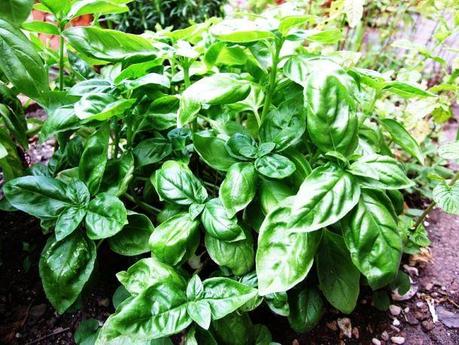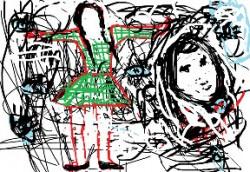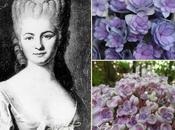 di Najat Abdul Samad. Raghad era magra e il suo aspetto era fragile come la stanza che era diventata una nuova casa per lei, per la madre, i sei fratelli e la famiglia dello zio.
di Najat Abdul Samad. Raghad era magra e il suo aspetto era fragile come la stanza che era diventata una nuova casa per lei, per la madre, i sei fratelli e la famiglia dello zio.
La sua esilità somigliava a quella del gambetto di basilico che si portò dietro nel campo dei rifugiati. La madre l’aveva sgridata: “Non c’è spazio per il basilico. Liberatene!”. Ma Raghad non l’aveva ascoltata. “Se lo lascio qui morirà, ma!”. Così lo portava in una mano e nell’altra teneva una sporta con tutti i suoi averi… nessun giocattolo.
Oggi non si è spazzolata i capelli. Era triste. E, come lei, pareva triste la sua chioma color carbone. Le sfiorava le spalle ma non arrivava alla vita – la sua vitina a forma di clessidra. Tutto in lei era minuto, tranne gli occhi grandi.
La madre la informò: “Arrivano ospiti”.
Persa nei suoi pensieri, lei si rifugiò dietro la tenda per cambiarsi e indossare un abito di un blu sudato, pendenti dorati e le babbucce della sorella. Muovendo verso un angolo della stanza, affondò le mani tra le foglie del basilico e poi rientrò per darci il benvenuto.
Aveva le mani fredde e vi era una sorta di irrequietezza nei suoi occhi a mandorla. Avevano lo stesso colore del materiale nerastro che copriva il pavimento. Apparivano nostalgici del sole che lei doveva avere conosciuto in una vita precedente… Si sedette davanti a noi e ci fissava ma i suoi pensieri erano altrove.
Uno dei visitatori del gruppo di soccorso la fotografò. Non le importò. Sedette ferma davanti alla luce brillante del flash e poi mormorò dolcemente: “Passami il telefonino. Non lo rovinerò. Scattami una foto mentre lo tengo in mano e te lo rendo subito”.
La madra s’imbarazzò: “Mi chiedo da dove vengano certe idee a questa bambina?” disse. “Quando cenavamo, l’intera famiglia sedeva sul pavimento a mangiare dal singolo piatto. Ma lei andava in cucina e usava un piatto, un coltello e una forchetta che tenevo solo per gli ospiti. Metteva con attenzione il cibo sul piatto e poi lo tagliava a pezzetti. Quindi lo mangiava con appettito senza notare il guizzo irato negli occhi del padre” si lamentò la madre.
E ancora: “Una volta diedi ai bambini semi di zucca, lei ne prese un paio, ne aprì con attenzione il guscio con i denti per riporli subito dopo sul piatto. Mangiò ogni seme con la forchetta e poi si pulì anche gli angoli della bocca sebbene non vi fosse traccia di cibo. E non smette mai di farlo. Giuro che mi sta preoccupando davvero”.
“Il padre non vive più con noi per cui adesso non ha nessuno da temere. Lui è stato prelevato da loro mesi fa, da quando demmo rifugio ai “terroristi”. Non abbiamo avuto più notizie. Così, abbandonata qui senza piatti e senza un padre, la tristezza di Raghad è cresciuta e lei non mangia più”.
Raghad uscì dalla stanza. Portando con se il gambetto di basilico, andò verso la nostra macchina e rimase lì ad ammirarla. Le sue mani toccavano il metallo e lo carezzavano come un uomo di Dio sfiora un libro sacro. Aprì la portiera posteriore e fissò il sedile in pelle. Lo carezzò a lungo prima di sedervisi sopra. Come una stella di Hollywood davanti ad una cinepresa, ci degnò di un solo sguardo distante e poi si perse nel sogno. Non sapeva esattamente cosa stesse sognando, ma mentre il sogno diveniva riaprì gli occhi e mise il basilico sul sedile davanti. Dopo uscì dalla macchina nello stesso modo aggraziato con cui ci era entrata.
Voltandosi verso di noi si raccomandò: “Bagnatelo ogni giorno… non scordatevene!”.
Raghad era una giovane sognatrice. La famiglia e i compiti scolastici non erano di consolazione per lei. I suoi quaderni non contenevano stelle-premio decorate dai suoi insegnanti. Il suo cuore non era né con la famiglia né con gli studi ma con il suo primo amore.
“Saif” si chiamava. Era il cugino ed era di due anni più grande. Ma non era più con lei. Era morto durante un bombardamento di due settimane prima. Dopo di allora la tristezza di Raghad si era triplicata: niente piatti, niente padre, niente Saif. Infine la tristezza si era quadruplicata con l’esilio.
Un paio di giorni prima di quella fuga Raghad e Saif erano andati insieme al matrimonio di un parente. Molti altri parenti erano là, sebbene il loro numero avesse cominciato a diminuire. Nel cortile loro avevano danzato a lungo. Non si erano neppure accorti di quando la maggior parte delle altre coppie avevano abbandonato la pista dopo aver sentito della morte del fratello dello sposo; non notarono la mancanza di elettricità che seguì subito dopo. Il cortile era vuoto tranne per i due giovani ballerini. Nessuno li notò, né loro notarono gli altri. Non sentirono le voci né si accorsero dell’oscurità.
Saif le teneva la mano, l’abbracciava per la vita e la consolava sussurandole “Aah Rghaida”. Le insegnò come muoversi con ritmo mentre danzava. Diceva “Rughaida danza così, batti il piede così… dai Rughaida, di nuovo, da capo”.
…. Sulla terra, nel cortile, batti così! Con un passo tonante, batti così! Lascia che spaventi i parassiti e i vermi addormentati.
Nel viaggio verso l’esilio, battì così, così che possa svegliare i volti spaventati dietro le grate di silenzio e di paura.
Continua a batterlo così in esilio così che i rifugiati non abbandonino mai il loro sogno di ricongiungersi con i carcerati e di tornare a casa.
Continua a batterlo così con determinazione così che Saif possa udirlo da lassù, così che sia felice di vedere i frutti delle sue lezioni insieme alla stella-premio sulla sua pagella scolastica, quella che avrebbe dovuto ricevere il prossimo settembre.
Libera traduzione dall’inglese di Rina Brundu, 27 gennaio 2013.
Traduzione dall’arabo di Ghada Alatrash, 6 agosto 2012.
Lettera pubblicata su Al Jadid, Vol. 17, no. 64
© Copyright 2013 AL JADID MAGAZINE www.aljadid.com
____________________________________
ORIGINAL VERSION
Letter from Syria — From the Back Window, Raghad

By NAJAT ABDUL SAMAD. Raghad was thin and her appearance was as spare as the room that had become a new home to her and to her mother, her six brothers, and her uncle’s family.
Her thinness resembled the stem of basil she carried with her to the refugee camp. Her mother had yelled, “We have no place for the basil. Leave it!” But Raghad didn’t listen. “If I leave it here it will die, ma!” She carried it in one hand and a bag full of possessions in the other… no toys.
She didn’t brush her hair today. She was sad. Her hair was the color of coal, and, like her, it was sad. It touched her shoulders but didn’t cover her waist – a waist like an hourglass. Everything about her was tiny, except for her large eyes.
Her mother announced, “We`re having guests.”
Lost in thought, she hid behind the curtain to change clothes – a new blue sweat suit, her gold dangling earrings, and her sister’s slippers. Moving to the corner of the room, she dipped her hands in the basil leaves and came back to welcome us.
Her hand was cold and there was a restlessness in her almond eyes. They were the same color as the dark black fabric covering the floor. They seemed nostaglic for the warmth she might have known in a previous life… she sat across from us and looked our way, but her mind was somewhere else.
One of the visitors from the rescue team photographed her. She didn’t mind. She sat still as she posed before the bright flash, and then softly whispered, “Hand me the mobile for a minute. I will only touch it. I won’t ruin it. Take a photo with it in my hand and I will return it to you right away.”
Her mother was embarrassed. “Where does this little girl get her ideas from?” she said. “When we used to sit for dinner, the entire family ate from one plate on the floor. But she would go into to the kitchen and use a plate, knife, and fork that I only brought out for guests. She would daintily dish her food onto the plate and divide it into bites. She then would hungrily eat without noticing the spark of anger in her father’s eyes,” complained the mother.
She continued, “once when I gave the children watermelon seeds, she took her a couple and gently cracked the shells with her teeth and placed them on the plate. She ate each seed with the fork and wiped the corners of her mouth even though there was no trace of food. She never tired of it. I swear she’s giving me such a hard time.
“Her father is no longer with us, so she has no one to fear now. He was taken by them months ago, ever since “the terrorists” took shelter in our home. We have heard no news of him since. And now stranded here without plates or a father, Raghad’s sadness has doubled, and she will not eat.”
Raghad left the room. Carrying the stem of basil, she slipped away towards our car and stood admiring it. Her hands explored the metal and stroked it as a spiritual man would touch his Holy Book. She opened its rear door, staring at the leather seat. She caressed it with care before sitting on it. Like a Hollywood star in front of the camera, she gave us an averted glance and slipped into a daydream. She didn’t exactly know what she was imagining, but as the dream ripened she opened her eyes and placed the basil in the front seat. With that, she exited the car as elegantly as she had gotten in.
Turning to us, she said, “Water it every day… Don’t neglect it!”
Raghad was a young daydreamer. She found little consolation in her family or school work; her notebooks were not filled decorative stars from teachers. Her heart was not in her studies or with her family, but instead was with her first love.
“Saif” was his name. He was her cousin, two years older than her. But he was no longer with her. His life was taken in a bombing two weeks ago. And her sadness had now tripled: no plates, no father, no Saif. Her fourth sadness was the new exile.
A few days before their exile, they had gone together to their relative’s wedding. Many relatives were there, although their numbers had begun to shrink. In the courtyard of the wedding they danced for a very long time. They didn’t even notice when most of the dancers left upon hearing about the death of the groom’s brother; they hardly noticed the electricity outage which followed shortly after. The courtyard was empty except for the two young dancers. No one noticed them, nor did they notice anyone else; they couldn’t hear the news or see the darkness.
Saif held her hand, supported her waist, and soothed her by saying, “Aah Rughaida.” He taught her to stomp her foot and move her waist as she danced. He said, “Rughaida, dance like this… stomp your foot like that… come on Rughaida, again, from the beginning.”
…On the ground, in the courtyard, stomp it! With a resounding step, stomp it! Let it scare away the vermin of this earth and its dormant worms.
On the journey of exile, stomp it, so that it can awaken the frightened faces behind their windows of silence and fear.
Continue to stomp it in exile so that the refugees never give up their dream of reuniting with those detained and returning to the front porches of their homes.
Stomp it resolutely so that Saif can hear you from there, and so that he is happy to reap the fruits of his lessons, and to reward himself with a star in his school notebook, the one he was to receive next September.
Translated from the Arabic by Ghada Alatrash
August 6, 2012
This letter appears in Al Jadid, Vol. 17, no. 64
© Copyright 2013 AL JADID MAGAZINE
Note: many thanks to Najat Abdul Samad, Ghada Alatrash and to my dear friend Elie Chalala. RB
Featured image, basil, author Castielli, own work, source Wikipedia.
Other image by Etab Hreib for www.aljadid.com
Tagged as: arab spring, Attualità, crisi, english, Giornalismo online, opinioni online, Rina Brundu, Rosebud - Giornalismo online, siria
Categorised in: 847, Rina Brundu, Rosebud in English, Tutti gli articoli






